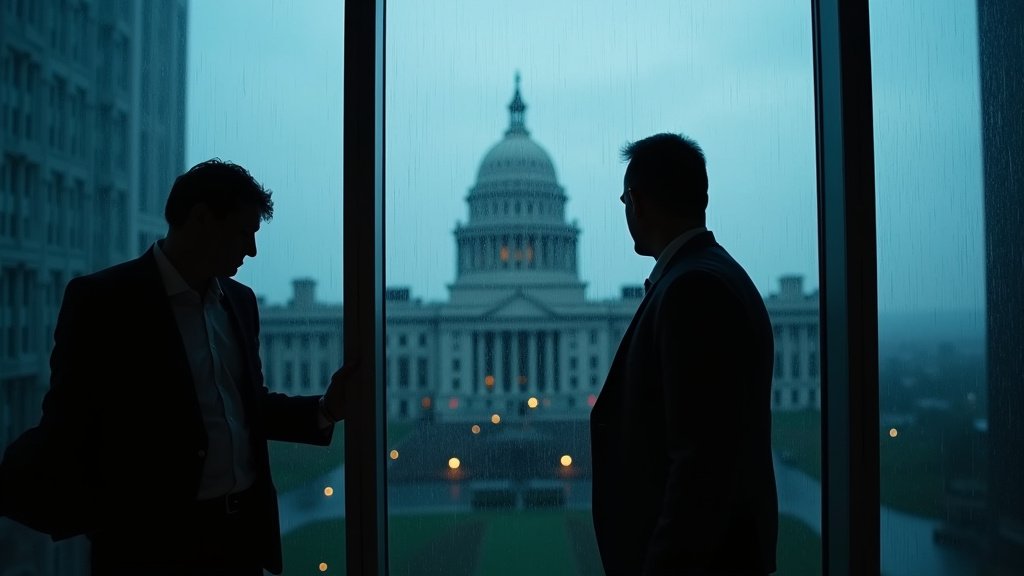Federal Judge Issues Temporary Block on Key Texas SB4 Immigration Provision
Austin, TX – In a significant development within the protracted legal conflict surrounding Texas’s assertive border security measures, a federal district judge in Austin has issued a temporary restraining order effectively blocking a core provision of the state’s controversial immigration law, Senate Bill 4 (SB4). U.S. District Judge David Ezra, based in Austin, handed down the ruling shortly after recent arguments concerning the law were heard at the Fifth Circuit Court of Appeals, injecting a new procedural twist into the high-stakes legal battle between the State of Texas and the federal government over border enforcement authority.
The provision specifically targeted by Judge Ezra’s temporary order is the one that empowers state law enforcement officials to arrest and detain individuals suspected of illegally crossing the border into Texas. Furthermore, this provision also allows state judges to issue orders for these individuals to be deported or returned to Mexico, a power traditionally and historically reserved exclusively for the federal government and its immigration agencies, such as U.S. Immigration and Customs Enforcement (ICE) and U.S. Customs and Border Protection (CBP).
Judge Ezra’s decision to temporarily halt the implementation of this specific, crucial element of SB4 cited concerns regarding potential conflicts with established federal immigration authority. The judge’s order underscores the principle of federal preemption, a doctrine derived from the Supremacy Clause of the U.S. Constitution, which holds that federal laws take precedence over state laws when there is a conflict or when the federal government has occupied a particular field of regulation, such as immigration.
The ruling also explicitly acknowledged the complexities of the ongoing legal challenges facing SB4. The law has been the subject of intense legal scrutiny since its passage, drawing lawsuits from the U.S. Department of Justice, civil rights groups, and immigrant advocacy organizations. These lawsuits argue, primarily, that SB4 is unconstitutional because it infringes upon the federal government’s exclusive jurisdiction over immigration matters.
Background: Texas SB4 and the Conflict Over Border Authority
SB4, signed into law by Texas Governor Greg Abbott in December 2023, represents one of the state’s most aggressive legislative efforts to address undocumented immigration. Proponents of the law argue it is necessary to secure the border in the face of what they describe as inadequate federal action. They contend that Texas has a right to defend its borders and address the impacts of illegal immigration within its territory.
Opponents, however, argue that SB4 is not only unconstitutional but also impractical and potentially harmful. They raise concerns about racial profiling, civil rights violations, and the logistical challenges of state and local law enforcement attempting to navigate complex federal immigration laws and procedures. The law’s core provision allowing state arrests and deportations has been the most contentious aspect, viewed by critics as a direct usurpation of federal power.
The legal challenge to SB4 has been swift and multifaceted. A key part of the legal battle unfolded in the U.S. District Court for the Western District of Texas, where Judge Ezra presides. Initially, Judge Ezra had issued a preliminary injunction blocking the entire law from taking effect. This injunction was subsequently stayed (put on hold) by the U.S. Fifth Circuit Court of Appeals, allowing SB4 to potentially go into effect while the appeals process continued.
However, the legal landscape shifted again when the U.S. Supreme Court, in a 6-3 decision, vacated the Fifth Circuit’s stay, effectively reinstating Judge Ezra’s original injunction and preventing SB4 from taking effect. Just days later, the Fifth Circuit again issued a stay on the injunction, permitting the law to go into effect for a brief period before the Supreme Court, on technical procedural grounds related to the timing of the Fifth Circuit’s mandate, allowed the injunction to be reinstated once more. This rapid back-and-forth between courts highlighted the profound legal disagreements and the procedural volatility surrounding the case.
The Temporary Restraining Order and Its Immediate Impact
Judge Ezra’s latest action — the issuance of a temporary restraining order (TRO) targeting specifically the arrest and deportation provision — comes against this backdrop of ongoing legal flux. A TRO is a short-term court order issued to prevent immediate and irreparable harm before a more substantial hearing can be held. It is often a procedural step taken when circumstances change or new information warrants urgent, albeit temporary, judicial intervention.
The timing of this TRO, following recent oral arguments before the Fifth Circuit regarding the overall legality of SB4, suggests the judge may be responding to specific points raised or the evolving understanding of the procedural posture of the case as it makes its way through the appellate process. By focusing the TRO narrowly on the arrest and deportation authority, the judge has targeted the provision most clearly seen by legal analysts and the federal government as encroaching on federal turf.
This temporary block means that, for the duration of the TRO, Texas state law enforcement officers cannot utilize the authority granted under SB4 to arrest individuals solely based on suspicion of illegal entry or to facilitate their removal from the country under state process. This is a significant, albeit potentially brief, curtailment of the law’s intended operational effect.
State of Texas Response and Future Legal Steps
Following the issuance of the temporary restraining order by Judge Ezra, officials from the State of Texas stated they are reviewing the order. They indicated that they are considering immediate legal action to challenge this new ruling. This response is consistent with the state’s determined defense of SB4 and its arguments that it is operating within constitutional boundaries to address border security issues.
It is highly anticipated that Texas will seek to appeal this temporary restraining order to the Fifth Circuit Court of Appeals, potentially asking the appellate court to stay (put on hold) Judge Ezra’s TRO while the appeal is considered. The legal path for SB4 remains uncertain and fraught with complex questions regarding the division of powers between state and federal governments, particularly in the realm of immigration.
This temporary block by Judge Ezra is another procedural step in a legal battle that is far from over. The ultimate fate of SB4’s key provisions, and the extent to which states can enact their own immigration enforcement measures, will likely continue to be litigated through the federal court system, potentially returning to the U.S. Supreme Court for a definitive ruling.






